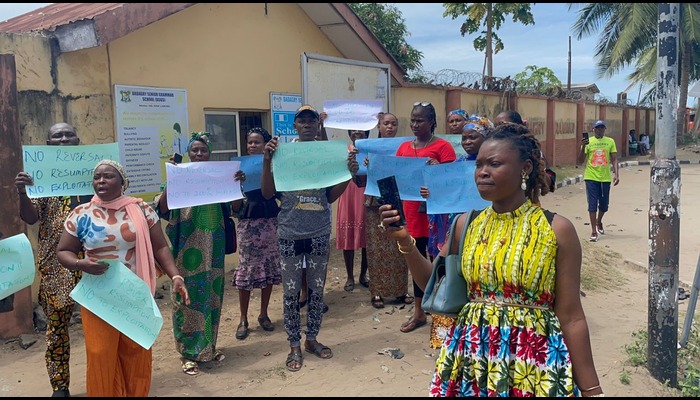Tuition Storm: Parents, Schools Clash as Soaring Fees Push Families to the Brink

Tuition Storm: Parents, Schools Clash as Soaring Fees Push Families to the Brink
As schools across Nigeria resume for the 2025/2026 academic year, parents and operators are clashing over steep tuition hikes ranging between 25 and 100 per cent. The increases, driven by inflation and high operating costs, have forced some families to transfer their children from private schools to public ones. A LagosMums survey revealed that about 35 percent of parents have already made this switch, citing affordability as the primary reason. “Still, the fees are high enough that we sometimes have to move our children to more affordable schools or delay payments,” said Lagos mother of three, Mrs. Folashade Adeniyi.
According to the National Bureau of Statistics, inflation hit 24.5 percent earlier in 2025, fueling higher tuition, food, transportation, and supplies costs. Mid-tier private schools now charge between N400,000 and N900,000 yearly, while elite schools demand between N2.5 million and N5 million. Boarding and feeding fees can add another N300,000 to N2.5 million depending on the school. Even public schools, though relatively cheaper at N15,000 to N35,000 yearly, have doubled their fees over five years due to economic pressures.
Private school operators argue that the hikes are inevitable for survival. National President of the National Association of Proprietors of Private Schools (NAPPS), Yomi Otubela, explained, “We recognize that this is a collective struggle, and schools are doing their best to balance sustainability with compassion for parents. It is true that schools, like every other sector, are affected by inflation, high utility bills, and the rising cost of educational materials. However, fee adjustments are not made arbitrarily. They are considered carefully, and in most cases, schools only adjust fees when it becomes inevitable for survival.” He added, “Even when there are adjustments, many of our members try to keep increases modest, often absorbing part of the cost burden themselves.”
Otubela further appealed for government intervention, recommending tax relief, subsidized educational materials, and improved access to funding as palliatives to ease the pressure on schools and families. “Our advice to the government is to consider special palliatives for education,” he said. Similarly, Orji Kanu, President of the Association for Formidable Education Development (AFED), warned of closures if help does not come soon. “I recall that about two or three weeks ago, a friend of mine called me and said, ‘I can’t cope anymore; I’m shutting down the school.’ … The truth is that school owners are struggling. I’m appealing to the government to find a way,” he lamented






